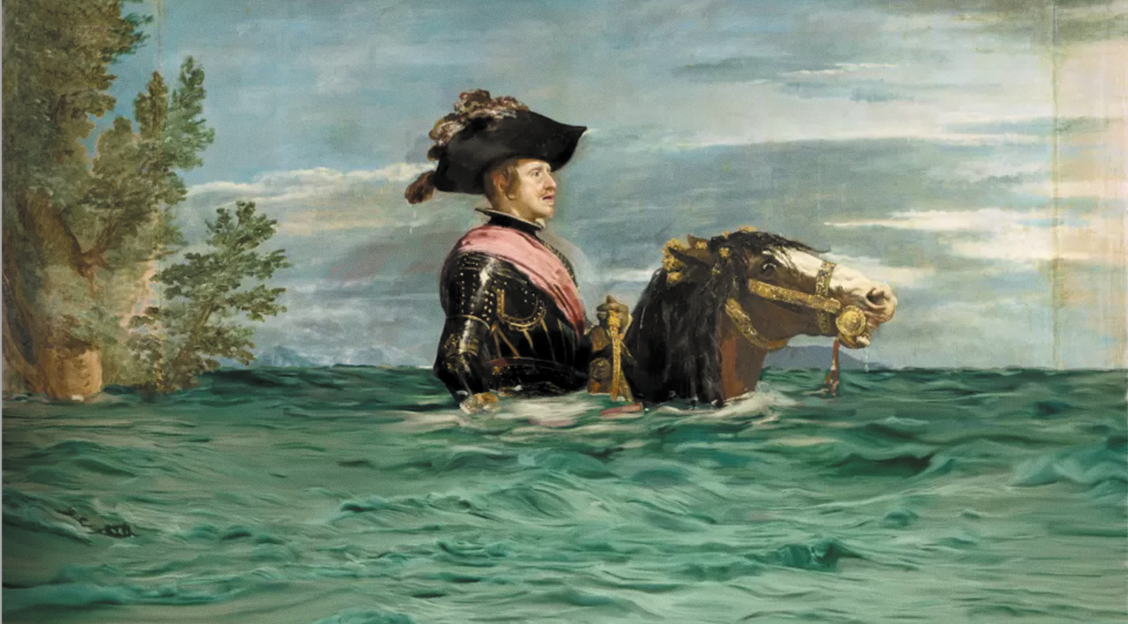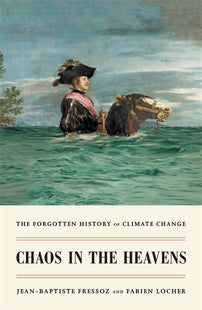Civilizing the climate
How the French colonization of Canada was aided by the country’s brutal winters.

What was to be done with America? In the seventeenth century this was a formidable challenge, posed in this instance to the political, scientific and economic elites of France and England. How were its soil, resources and environments to be exploited? Which subjects and workers should these distant lands be populated with? And how was sovereignty over immense, largely unknown territories to be displayed? America seemed to present itself as a continent predating civilization, as a past from which to set out to map a new path. But which one?
There were plenty of answers. People sought signs. They sought to read into the development of the climate a sanctification of empire. They dreamt of improving Creation by clearing and cultivating the land, by civilizing nature in the New World. Thinking about climate would be all of these at once: justifying conquest, claiming to restore Adam’s empire, posing as the sculptor of a nature to be fashioned by reason, force, and the quest for profit. But a shadow of anxiety soon hung over this will to power.
The first decade of the seventeenth century saw France trying to get a foothold in Canada. Henry IV supported the expeditions of the soldier and the seafarer, Pierre Dugua de Mons and Samuel de Champlain, who founded the towns of Port-Royal and Quebec. This colonizing momentum led to the publication of accounts in the metropolis: the first History of the colony by the lawyer Marc Lescarbot, a companion of Champlain, and the Report by Father Biard – the first of a long series of Jesuit accounts that would shape the image of Canada. These writings urged colonization and sought to dispel the black legend of a country described by some as a hostile land prey to Satan.
Climate played an important part in them. The authors first of all stressed that France and Canada, being located on the same latitudes, were subject to the same climate in the cosmographical sense. For Biard this helped justify French sovereignty, which was disputed by England. This sovereignty derived, on the one hand, from the anteriority of the discovery and, on the other, from the correspondence of two territories that lay (as the explorer Jacques Cartier had already pointed out) ‘under the climates and parallels [of] the regions and kingdom’ of France. This was what Biard characterized as the ‘natural fairness’ favouring French sovereignty, because ‘these lands are parallel to our France and not to England.’
But the argument went beyond the idea of spatial continuity. For with the same climate came the same stars and length of days, along with the same temperatures and the same seasons: the same climate in the physical sense of the term. In Lescarbot, this idea underpinned a different argument justifying colonization. His account not only assimilated French and Canadian climates, it also implicitly contrasted them with that of equatorial Brazil, scene of the debacle of the colony of ‘France Antarctique’ in 1550–60. It was influenced by Jean Bodin’s theories on the correspondence between the character of places and the mores of peoples. While colonial endeavours had failed in Brazil, they would bear fruit in Canada, Lescarbot maintained, for the ways of the French and Indians were similar (or could become so), like their habitats.
But a massive factor destabilized discourses on the homology of climates either side of the Atlantic: Canada’s long, freezing winters. In the seventeenth century, description of this cold weather was a staple of any account of Nouvelle-France. As well as marking a rift with French climates, this winter, ‘which is so much discussed in Europe on account of its violence and duration’ (wrote the Jesuit Lalemant), was detrimental to the cause of colonization. It was to resolve this tension that the thesis of an anthropogenic transformation of climates was articulated, in the early decades of the seventeenth century, as an apologetic discourse for the agricultural exploitation of Canadian lands.
For Lescarbot, there were two reasons for the abnormal duration of winters across the Atlantic: the inherently cold character of America, but also the immensity of the Canadian forests, which prevented the sun from heating the Earth. Biard took the same line, evoking the ‘infinite forest’ stopping solar heat from reaching the ground. However, he maintained, this would change were the land to be inhabited and cultivated. Three years earlier, Champlain expressed the same conviction. ‘I believe’, he insisted, ‘[that the snow] remains much longer than it would if the land were ploughed.’
As on Hispaniola, the idea of climatic improvement underwrote a project of settlement colonization with a sedentary, agricultural population. It also implicitly condemned two alternative forms of land use. The first was that of the Indians. Endless forests and large rivers were indicative of the vacant state of spaces they did not know how to exploit. An identical argument is to be found in the discourse asserting British sovereignty over New England. The other model to be conspicuously avoided was an economy based on fishing and the fur trade, which took the form of a dispersed presence in the interior and a seasonal presence on the seaboard.
The prospect of climate improvement argued for cultivating Canadian spaces. This agricultural route, in addition to its economic, moral and spiritual values, would civilize the climate and then, in a virtuous circle, more clement winters would enable better harvests. The homology of climates and mores would strengthen French sovereignty on these lands.
– An edited excerpt from Chaos in the Heavens: The Forgotten History of Climate Change by Jean-Baptiste Fressoz and Fabien Locher. Translated by Gregory Elliott.
[book-strip index="1" style="buy"]

